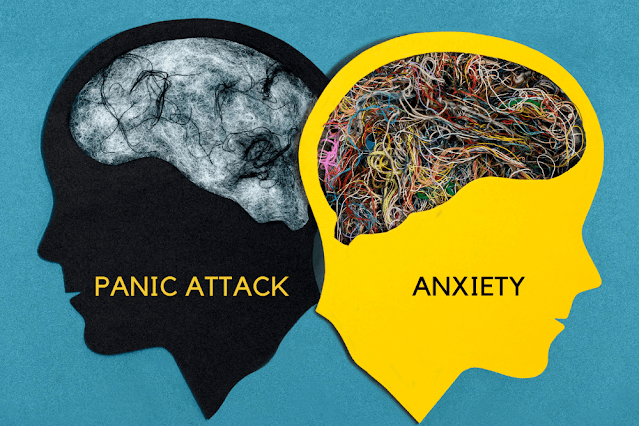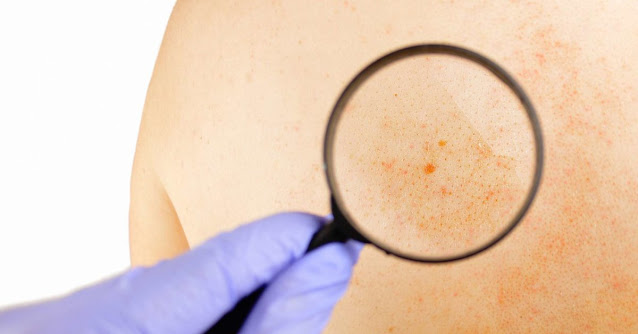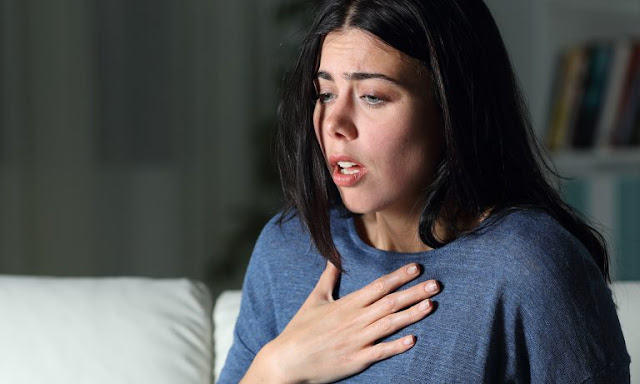Anxiety and panic attacks can both trigger high blood pressure, shallow breathing and a feeling of stress. But, they are different in their severity and trigger.
Panic attacks tend to be more intense and can happen without or with triggers, whereas anxiety attacks can be a reaction to perceived threats.
The words anxiety attack, panic attack, or panic attacks interchangeably; however, they aren't identical. The two types of attacks are distinct and have different duration and intensities.
Anxiety symptoms are connected to psychological health issues, including obsession-compulsive disorder and trauma, whereas panic attacks are most common among those with panic disorder.
This article will discuss the distinctions between panic attacks and anxiety attacks.
Panic Attack vs Anxiety
Since the symptoms are similar, it is difficult to differentiate between panic attacks.
Here are some suggestions that may assist: Panic attacks
Anxiety attacks
An event trigger usually causes it. However, it is possible to be present without a catalyst.
A reaction to a perceived threat or stressors.
Symptoms are usually sudden.
Anxiety can increase slowly over time.
These symptoms are often disruptive and can be accompanied by a feeling of separation.
The intensity of symptoms can range from mild to extreme.
Most often, it will subside within several minutes.
Symptoms may prevail for more extended periods.
What are the symptoms and signs?
Anxiety and panic attacks show different signs.
The symptoms of a panic attack Panic attacks can strike suddenly, often sudden, without an identifiable trigger. a rapid heart rate
- chest pain
- dizziness or lightheartedness
- hot flashes or chills
- nausea
- the sensation of numbness or tingling on the extremities
- shaking
- breathlessness
- stomach pain
- sweating
- A person who is experiencing a panic attack might also:
- You feel like you are losing control
- Have a sudden fear they'll be killed
- are unable to connect with them or their surroundings
Panic attacks typically last for five to 20 minutes.But, multiple panic attacks can happen at once, making it appear as if a seizure lasts much longer. Following an attack, many people are stressed, anxious or just plain uncomfortable throughout the day.
Find out more about panic attacks and panic disorder here.
Anxiety attack symptoms
As panic attacks appear abruptly, anxiety symptoms accompany a prolonged period of anxiety.
Anxiety symptoms can get more intense within a couple of moments or hours. They're usually more atypical than panic attacks.
Anxiety attacks aren't a medically diagnosable disorder. Yet, symptoms of a generalized anxiety disorder (GAD) include:
- Nervousness
- irritation
- higher heart rate
- rapid breathing
- trembling
- sweating
- an underlying fear of danger
- difficulty concentrating
- sleep disturbances
The signs of anxiety can last for longer than those of panic attacks. They may last for weeks, days, or even months.
Find our all-encompassing anxiety resource right here.
What triggers anxiety and panic attacks?
The precise causes of panic and anxiety disorders are not clear. Individuals are likely to suffer from these disorders due to medical, genetic and other external triggers.
Find out more about anxiety's causes here.
RELATED POST -
5 Simple Exercise For Lower Chest
Most people experience panic or anxiety attacks because of the possibility of unpredictable or predictable threats. These threats could be real or imagined.
A person can suffer from panic attacks or anxiety because of:
- environmental stressors
- the withdrawal of alcohol or other substances
- chronic ailments such as persistent pain
- medication side effects
- Phobias (excessive fear of particular objects or events)
- Trauma exposure triggers
- excessive use of stimulants like caffeine
The risk factors that can trigger panic attacks
It is more common for individuals to have panic attacks when they suffer from:
- Family or personal experience of anxiety attacks
- Other mental health problems like depression, bipolar disorder and anxiety disorder.
- A chronic medical condition like a thyroid condition, diabetes, or heart disease
- issues with alcohol and the use of drugs
- life stressors
- stressful events
- Past trauma
A 2019 study Trusted Source Researchers found that minorities with sexual orientations are more likely to suffer from GAD; however, the frequency was different by age. Researchers classified anyone who supports same-sex attraction or behaviour or was identified as non-heterosexually sexual as a minority.
Another study revealed that LGBT youth are twice as likely to suffer from panic attacks or anxiety than their counterparts.
Women are twice more likely to suffer from anxiety disorders as men.
Diagnosis
A physician or mental health specialist can diagnose panic attacks, panic attacks, and anxiety disorders.
They make their diagnoses on
Trusted Source
Definitions are found in the Diagnostic and Statistical Manual of Mental Disorders on definitions in Diagnostic and Statistical Manual of Mental Disorders, Fifth Edition (DSM-5).
They cannot diagnose an anxiety attack since it isn't a medically identified condition defined in the DSM-5. However, they can identify the symptoms of an anxiety attack and identify an anxiety disorder.
A physician will talk with you about symptoms and life experiences to identify any of these disorders. They might also conduct psychological tests to determine the symptoms' category.
It could be necessary to rule out any physiological issues with similar symptoms. Share identical symptoms.
For this, a doctor can do the following:
- A physical exam
- Blood tests
- Heart tests, like an EKG
To support your mental health and the well-being of you and your family members during this challenging time, Visit the unique mental health website to find more scientifically-based details
.
Home remedies
The Anxiety and Depression Association of America offers the following remedies at home to treat anxiety and anxiety.
- Reduce or manage the impact of stressors
- Restrict alcohol and caffeine consumption
- Eat a nutritious and well-balanced diet.
- Sleep at 8 hours at night
- Practice mindfulness, or yoga, as well as deep, deep breathing
- Create a support network
In the course of a panic attack or anxiety attack
These strategies can be helpful in the event of an attack:
- Acknowledgement: The signs of a panic attack or anxiety attack can be terrifying. Accepting the problem and remembering that the symptoms will pass soon will help reduce anxiety and anxiety.
- Breathing techniques: Trouble breathing is one of the most frequent and alarming signs of these assaults. The ability to control breathing can ease the symptoms of an attack.
- Relaxation techniques: Techniques for relaxation, like progressive muscle relaxation or guided visualization, can ease anxiety and panic.
- Mindfulness: Mindfulness assists people in remaining in the present moment. It is particularly beneficial for those suffering from anxiety who is often worried about the stressors they see as possible and fear.
Medical treatments
Medical professionals will evaluate a patient's symptoms and recommend treatment according to the severity of the condition. The treatment will usually focus on treatment, medication or an amalgamation of both.
Therapy
Engaging in an interpersonal session of therapy can assist in identifying triggers and treating symptoms. Therapy also helps individuals accept their past while working towards the future. Therapy sessions can be held in person or remote.
CBT is a form of cognitive treatment for behavioural disorders (CBT) is a commonly used therapy for GAD or panic disorder. CBT is focused on an individual's behaviour in response to specific situations or stressful events. Therapists will assist their clients in developing new behaviour patterns and techniques to respond to stressful situations.
Find out details about CBT as well as its uses here.
Medication
A medication may help ease symptoms in patients suffering from severe anxiety or anxiety disorders. Doctors might recommend medication as an alternative treatment in conjunction with psychotherapy.
A physician can prescribe:
- Selective serotonin Reuptake inhibitors (SSRIs) are a kind of antidepressant that boosts serotonin levels in the brain.
- Serotonin and noradrenaline-reuptake inhibitors (SNRIs) are other antidepressant medicine. It increases the levels of serotonin and noradrenaline within the brain.
- Pregabalin: If antidepressants do not work, a physician might recommend pregabalin, an anticonvulsant. Doctors typically prescribe this to decrease seizure intensity and frequency in epilepsy. However, it may assist in reducing the symptoms of anxiety.
- Benzodiazepines: Doctors can recommend benzodiazepines for short-term use for extreme anxiety.This medication acts as an anti-seizure medication and is not suitable for long-term use.
In 2020, the Food and Drug Administration (FDA)
Beware that benzodiazepine usage can result in physical dependence, and withdrawal may be life-threatening. Combining these substances along with other opioids and alcohol and other substances could cause the death of a person. It is crucial to follow your doctor's prescriptions when taking these medications and others to treat anxiety.
Find out more about the various types of anxiety medication here.
Takeaway
Anxiety attacks and panic attacks are distinct, but they share specific symptoms.
Anxiety attacks typically occur after times of constant anxiety. The episodes of panic tend to happen quickly, and the symptoms can be more severe.
Anxiety and panic can be disruptive and depressing; However, self-help techniques can lessen the intensity of the symptoms. The use of medication and therapy can stop or reduce the likelihood of subsequent episodes.
The sooner someone seeks assistance and seeks help, the better.
Also Read










0 Comments